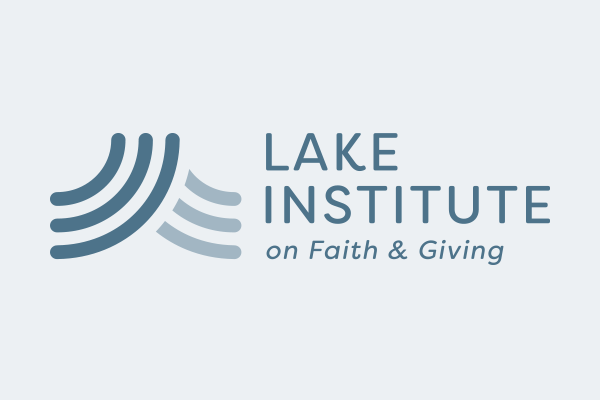N. Kurt Barnes, chief financial officer of the Episcopal Church, says churches must work together for God’s mission, not “fight about a building at the corner of Sixth and Main.” Drawing upon his experience in business and finance, Barnes helps the church form strategies in response to the global financial crisis. He envisions collaboration at all levels of the church in addressing the challenges. Barnes says this coming together is one of the positive outcomes of the crisis.
 Barnes has a bachelor’s degree in economics from Yale University and a master’s degree in economics from Harvard University. He has worked as an economist for the Rand Corporation and an assistant editor at Time Inc.’s Fortune magazine. For 20 years he was a financial officer at Inco Limited (International Nickel Company of Canada.) He also worked at Morgan Stanley as a vice president in the Fiduciary Advisory Group. Barnes has been on the Investment Committee of Amnesty International, USA, and is an ex-officio board member of Episcopal Relief & Development.
Barnes has a bachelor’s degree in economics from Yale University and a master’s degree in economics from Harvard University. He has worked as an economist for the Rand Corporation and an assistant editor at Time Inc.’s Fortune magazine. For 20 years he was a financial officer at Inco Limited (International Nickel Company of Canada.) He also worked at Morgan Stanley as a vice president in the Fiduciary Advisory Group. Barnes has been on the Investment Committee of Amnesty International, USA, and is an ex-officio board member of Episcopal Relief & Development.
He spoke to Faith & Leadership about the financial challenges the Episcopal Church -- and the church as a whole -- are facing.
Q: Coming to your work with the church from the world of finance, what are your ideas about the root causes of the current financial crisis?
The encouragement of risk-taking was a fundamental cause of the banking crisis, the financial crisis. There should be a consideration of risk versus reward in all activities: financial, farming, teaching English -- taking a risk on a new author in teaching, investing in a new product for the market. But in the financial industry, there is an increasing focus on how much risk we can take on and how much risk we can lay off to other people for our benefit.
I don’t exonerate those bankers who encouraged that activity. When I was at Morgan Stanley, gathering assets was important. Making a good return was important. Leveraging the investments was not part of my activity or a lot of the activity with which I dealt. In the same way that I wouldn’t characterize a group of people as being evil, I wouldn’t characterize all bankers or the entire financial world as evil.
Q: Another way to think about it is as a matter of greed.
Certainly some of the people were greedy. I can’t speak for individuals, but it appears that the focus was, “If I’m making more I’ll feel better. If I’m able to generate more, I will be promoted.” If that’s the sole focus of activity, then you’re bound to fail to be a productive member of the community.
Q: Are there particular challenges to the Episcopal Church in this global financial crisis? Are there strategies or solutions you have looked at for resolving the problems?
During the last couple of years people have said, “Never waste a crisis.” At the General Convention this past July, we reassessed our forecast of income from the 110 dioceses around the U.S. and across 16 other countries; we found our revenues to be down something on the order of 4 to 5 percent over the next couple of years. With that income shortfall and with the requirement to have a balanced budget, we realized we would have to substantially reduce spending.
One approach was, don’t hurt staff, don’t reduce staff, reduce non-staff expenses. That’s not reasonable. If staff people are sitting around doing nothing, then there is no ministry going on. Our response was to reduce both.
Unfortunately that meant we reduced our headquarter staff by about 20 percent. That’s on the spending side. We looked at spending and we identified spending cuts.
We looked at activities that we felt could be done by subsidiaries. Could a ministry be achieved at the local level, by a local parish or by individual dioceses? If it could, the work should be done there rather than from church headquarters.
On the revenue side -- and this is not something we’ll achieve in the next two or three years -- the Episcopal Church has not had a broad capital campaign to build its endowment for 25 years.
It does not have a development office. It will now have a development office.
In the last couple of years we created the beginning of a mission-funding office. The office charter is to develop large donations from wealthy individuals for new ministries. After a few years, the church recognized that it needs more than just these limited new programs. It needs to grow its overall endowment and sources of revenue. It’s beginning to think of having a real development office, the way universities or other non-religious, not-for-profits have maintained development offices.
Q: Do most denominations have that kind of development office?
Historically they have not. Like the Episcopal Church, they have relied on endowments established by wealthy parishioners years ago, or on unplanned bequests. The Episcopal Church certainly has not been historically comfortable in asking a parishioner to include the church in his or her will. There are several wealthy Episcopalians who died in the last few years whose probated wills gave minimal amounts to their parishes, probably because the parishioners were never asked. They gave millions of dollars to museums and libraries because they’d been asked. The challenge is to not be afraid to ask. It is a mindset change.
Q: Do you think these parishioners had a perception that the church didn’t need it? Was there an assumption that the church was wealthy?
Since Jamestown in the 1600s the influence of the Episcopal Church has been disproportionate to the number of Episcopalians. They were landholders and industrialists at a time it was popular to give to your church, to build a great edifice on Fifth Avenue or in Newport. As generations have gone on, and money has been filtered down through generations, the wealthy have become more detached from their churches, their rectors and their clergypeople. The people who have been parishioners have come to believe that, yes, my church is a big church and has an endowment left by Mrs. Moneybags 200 years ago or 50 years ago. Not appreciating that the money is not a bottomless well. Yes, there is the belief that the Episcopal Church has unlimited wealth.
My parish [Grace Church] is a small country parish a couple hours north of New York city. New parishioners believe that Grace Church is wealthy. Grace Church has an endowment of several hundred thousand dollars, but it’s one we raised in the last three years. Prior to that there was virtually nothing.
It’s replicated nationwide. The financial crisis in the last year has caused parishes that had relied on endowments to have new approaches to replenishing and growing their endowments.
Q: Do you think the crisis will be a good thing or a bad thing in the long run? Does the potential benefit outweigh the pain or is the pain too great?
Our neighbors always have a Thanksgiving dinner. This year 25 people were there and each person said what they were thankful for. It got to me this year. My reflection was that I’m thankful there have been more smiles than tears this last year. That’s what I hope people in the church, and across the country, will look back at 2008, 2009 and say, “Yes, it generated more smiles than tears.”
I hope the crisis has forced people to rethink what is most important to them, to readjust their lives necessarily. For other people who weren’t impacted as severely, who didn’t lose their jobs or their homes, the observation of people around them who lost a lot will encourage them to think about is important.The crisis has been a wake-up call to rethink what’s most important in individuals’ lives. It might be the church for some people. It might be a non-church social activity for others.
Q: Your new budget took effect on the first of January. How will life look different for the Episcopal Church based on the new budget?
About 40 fewer people will do the work at our denominational headquarters. But the work will be done. God’s mission will be done. Our spending for the church-wide budget will be about $5 million less than it was this past year.
We have refocused what the work should be and will be. We will achieve that work. I hope the crisis has encouraged us to be more strategic, to look further than one year or three years out. It encouraged us to think about measuring what we’re accomplishing and identifying what our goals are and what our expectations are.
Q: What are the guiding principles for deciding which parts of the mission are funded?
Decisions on what to emphasize and what to reduce were based on what things we do well and what things we have done well that should be assumed, developed and implemented at the local level.
Q: Can you give any examples?
Fifteen or more years ago the Episcopal Church developed an extensive program of training on how to think about racism, sexism and ageism. It developed a program of training throughout the dioceses around the country. Now there are anti-racism trainers and facilitators in most of the dioceses. In looking at budget decisions this summer, [we decided] the local parishes should continue that work. As a broad national headquarters we cannot afford to do that work any longer. We engendered the work. We developed it. Now we hope and expect that it will be continued.
Another example is that we identified things that we do well already across the church. I jokingly say we do pomp and circumstance really well. For that reason, we decided that one area where we could reduce budget was in our liturgy and music program. If there are liturgists and musicians across the country and around the world that are developing prayers and music, we don’t need to duplicate that effort at the national level.
Q: What’s the difference in your budget from last year ?
Roughly $47 million in 2010 compared to $52 million in 2009. It’s about a $5 million difference.
What will we do if we’ve been overly pessimistic about income? We hope we are wrong. We hope we have been overly conservative. In which case we will endeavor to rebuild the church’s reserves, which we have accessed over the last few years for projects that we could not have otherwise accomplished. We will provide things like a reserve for bricks and mortar, which churches never seem to identify; we never provide for the boiler that we know will fail after 20 years. It’s just something people don’t like to spend or reserve money for, bricks and mortar.
When a vestry is looking at whether to set aside money to re-carpet the altar or spend it on the soup kitchen, it’s very difficult to allocate money for the altar. The Judeo-Christian tradition says not to spend on yourself, give to others. In some instances spending on yourself is required.
Q: Are you nervous about the coming year as the CFO?
No, I’m not. People understand that they have to think a few years ahead and they have to think in their spending a few years ahead. I’m not nervous because people around the church, particularly bishops, who are essentially the chief executive officers of their dioceses, have a better understanding; I sense they are in tune with the idea that we are all in this together. It’s not “my dioceses against yours” or “why should I support the church-wide mission?” There’s a recommitment to working together.
Q: Because of this crisis?
Because of this crisis and because of the tensions within the Episcopal Church over the last four or five years. Our mission is not to fight small battles. The mission we’ve been given is much bigger. Our mission is to work together for God’s mission, not to fight about a building at the corner of Sixth and Main. That mindset encourages me.











